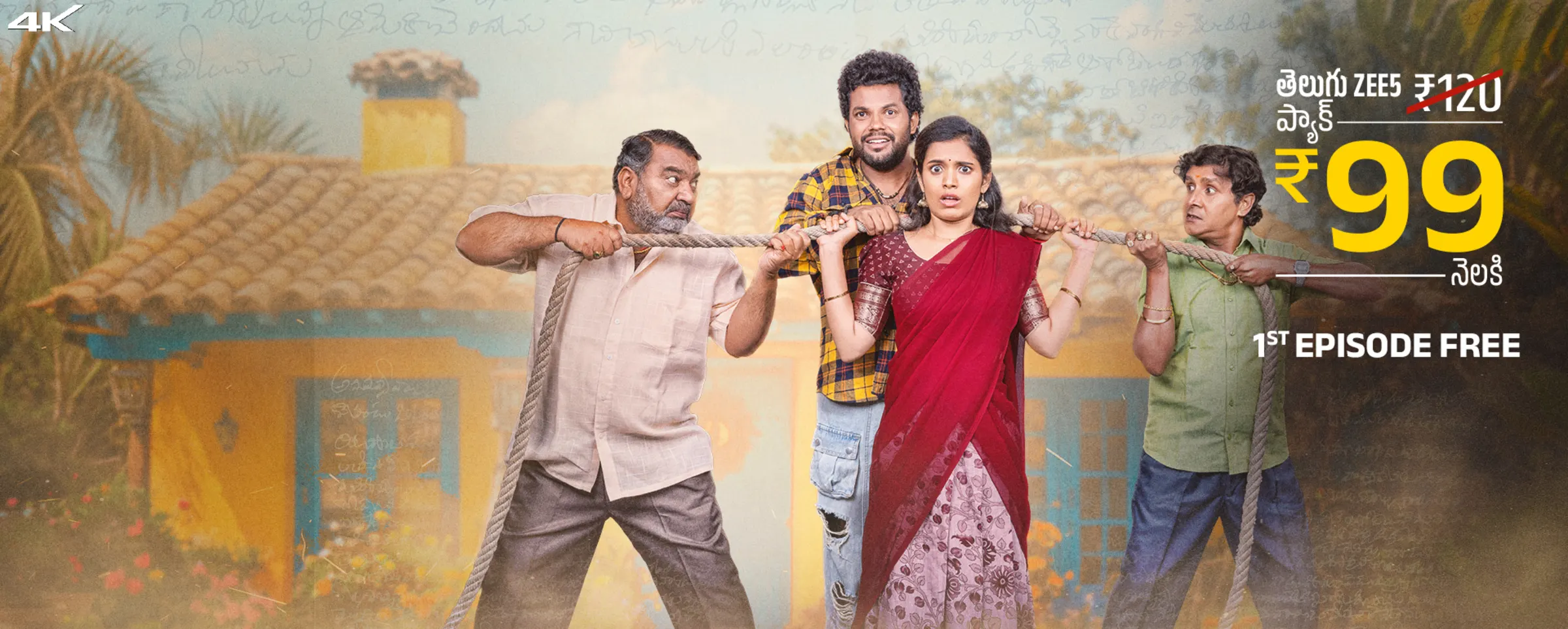A Show That Sneaks Up On You
Telugu mini-series are having a moment, and Mothevari Love Story proves why. It’s not flashy, it’s not trying to sell you a hero who fights ten goons with one punch. It feels soft, cheeky, warm. A weekend show slips into your day, sits beside you like an old friend, and before you notice, you laugh, you sigh, and soft tears rise.
On paper, it’s a love story tied up in land disputes and family secrets. On screen, it’s much more. It’s about the smell of soil after rain, the awkward glances at a wedding, the endless chatter of aunties during rituals, the way small villages hold grudges and also, somehow, hold you together.
The Premise That Sparks the Drama
So here’s the setup. Parshi, the young villager, wants to marry Anitha. Cute enough. But of course, families in Telugu heartlands don’t just hand out blessings with a smile. A twist drops like lightning: Parshi’s grandmother once had an affair with Anitha’s grandfather. Suddenly, inheritance and land come into play. There’s a five-acre field dangling as dowry bait, and grandma—bless her dramatic soul—offers it as leverage.
Now the love story isn’t just two people shyly exchanging smiles. It’s history, land, and honor all colliding. Which, if you’ve ever attended a rural family gathering, you know—feels very, very real.
Why It Feels So Authentic
What sets Mothevari Love Story apart isn’t just the script—it’s the texture. The dialect is pure Telangana, unpolished and proud. The lanes, the costumes, the rituals—they don’t look like sets. They look lived-in.
Silva Krishna Burra (yes, the writer and director rolled into one) clearly knows this world inside out. The humor doesn’t come from slapstick—it comes from overheard gossip, from grandma’s sly remarks, from the way neighbors stick their nose in. It’s the comedy of recognition. You watch and think: “That’s literally my uncle. Same tone, same swagger.”
And let’s talk casting. Anil Geela as Parshi feels like that boy-next-door cousin who still borrows your scooter without asking. Varshini Reddy Junnuthula as Anitha—playful, believable, and never reduced to just “the heroine.” Together, their chemistry isn’t filmy fireworks. It feels warm and easy, like two friends who know each other for years, cracking jokes while anger flares.
The Rhythm—Slow Burn, Big Payoff
Let’s be clear. The series doesn’t explode in the first episode. Some viewers might even grumble: “Is this too slow?” And maybe, for a minute, it feels that way. But give it time.
By the third episode, the humor finds its groove. By the fifth, the emotions dig in. Fights, mix-ups, and tears land with weight when you enter the world. Think of a long-simmered stew; it takes time, and the strong flavors punch and stay. Episode seven locks it in, with land, love, and laughter colliding into one end that makes you grin between sighs of that storm.
Music & Cinematography—The Extra Charm
Charan Arjun’s music is deceptively gentle. Folksy at its core, it never overwhelms, but it lingers—like the background hum at a temple fair. One song in particular (don’t worry, you’ll know it when it plays) feels like it belongs on loop in village loudspeakers during festival time.
Cinematographer Sreekanth Arupula deserves a shout too. The way he frames the open fields, the cracked walls, the festival lights—this isn’t glossy “Instagram village.” It’s raw, earthy, nostalgic. The visuals add another layer of honesty, grounding the love story in soil you can almost smell.
The Strengths & The Stumbles
Every show has both. Let’s be honest here.
Strengths: authenticity, casting, humor that feels organic, and that heartwarming progression from simple love story to family-driven emotional chaos.
Stumbles: the pacing, especially in early episodes. And a few tropes—land inheritance, stubborn elders—might feel predictable. But here is the thing: when old tricks come in, actors carry them with new force.
You know that dish you ate a hundred times; the right hands cook it, and taste sticks. Familiar, yet somehow better.
Why It’s Clicking With Audiences
Three days. That’s all it took for the show to hit over 200,000 viewers. Word of mouth, mostly. Because shows like this aren’t carried by flashy trailers—they’re carried by people telling their friends, “Hey, you’ll laugh, you’ll feel at home, just watch it.”
And the charm isn’t restricted to Telangana. Even audiences outside the region connect, because love and family politics? Universal.
Why Mothevari Love Story Wins on Heart
At its core, this series wins because it understands that love stories aren’t just about the lovers. They’re about the weight of families, the gossip of neighbors, the pull of history, and yes—even about land squabbles.
The laughter isn’t forced. The tears feel real. The tale breathes like everyday life, awkward, tender, thorny, bright, and raw. That simple truth holds the beauty we share. It does not sweep you or toss your heart. It walks with you, taps your arm, and says, “Look. This is love, growing in messy soil.”
Quick Takeaways
Episodes: 7, streaming now.
Leads: Anil Geela & Varshini Reddy Junnuthula.
Why Watch: For the authenticity, the slow burn, the humor stitched into everyday moments.
Best Scene: Grandma’s inheritance twist—both hilarious and emotional.
Final Note (Not Perfect, But Perfect Enough)
Mothevari Love Story isn’t flawless. Some scenes drag. A few beats feel predictable. But you forgive it. Because when it hits, it really hits—like a festival drumbeat echoing in your chest.
If you want glossy escapism, maybe this isn’t your pick. But if you want warmth, rooted humor, and a romance that feels like it belongs to the soil, this one will win you over.
And here’s the kicker: once it clicks, it doesn’t just win. It stays. Long after you log out.
Bio of Author: Gayatri Tiwari is an experienced digital strategist and entertainment writer, bringing 20+ years of content expertise to one of India’s largest OTT platforms. She blends industry insight with a passion for cinema to deliver engaging, trustworthy perspectives on movies, TV shows and web series.




